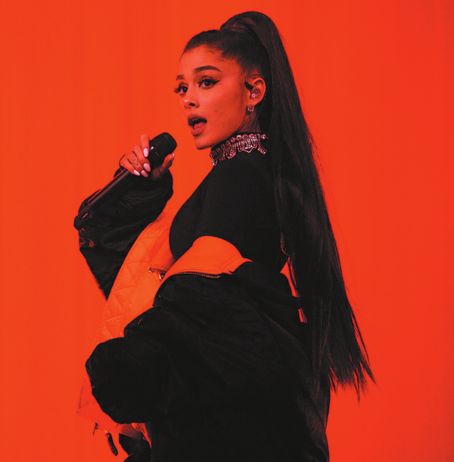China's music market now marching to a new beat
By Chen Nan ( China Daily ) Updated: 2017-11-18 09:55:10
 |
|
Ariana Grande made her debut tour in China for the first time this August. [Photo provided to China Daily] |
Now, QQ Music has more than 100 million active users daily.
Since 2013, Tencent Music Entertainment has worked out partnerships with more than 200 music labels, including major companies such as Warner Music, Sony Music and Universal Music, as well as independent labels, according to Andy Ng, the vice-president of China's leading streaming platform.
The move allowed the company to become these labels' sole distributor in the Chinese market and helped them fight piracy.
In 2014, Tencent Music Entertainment began working with record labels to release digital albums, and within 18 months its revenues hit 100 million yuan.
For starters, it released Taiwan pop icon Jay Chou's album, Aiyo, Not Bad, in December 2014.
And, so far, it has released digital albums by many Chinese singers, including Dou Jingtong and Lu Han, as well as South Korean boy group Big Bang, and Western artists such as Adele, Rihanna and Taylor Swift.
As for how Tencent Music Entertainment has managed with foreign stars, you have look at 2016 when it released the digital album of Anti, the eighth studio album by Barbadian singer Rihanna.
The album sold 160,000 copies and topped the Asian music market then.
Later, the same year, American singer Ariana Grande's third studio album, Dangerous Woman, which sold in the digital format via Tencent Music Entertainment's online music streaming companies, went platinum within 48 hours.
American singer-songwriter Taylor Swift's latest album, Reputation, sold 750,000 yuan in 24 hours on QQ Music.
While Tencent Music Entertainment has played a big role in reviving the music industry, official regulation has also played a part.
The 2015 China's National Copyright Administration notice that online music-delivery platforms had to remove all unauthorized songs by July 31 that year, is also seen as a major move in the fight against rampant piracy in the industry.
As for how international music companies see the future in China, Universal Music Group's Senior Vice-President Jonathan Dworkin, says: "We already have a long-standing investment in Chinese repertoires, and we want to see a great platform for our international artists.
"I think that the ability to communicate and kind of engage consumers across multiple touch points in the Tencent ecosystem is remarkable. And we are seeing this explosion of interest in streaming music and an explosion of consumption of legal music."
|
|
|
|
|
|
|
|

























 Raymond Zhou:
Raymond Zhou: Pauline D Loh:
Pauline D Loh: Hot Pot
Hot Pot Eco China
Eco China China Dream
China Dream China Face
China Face






